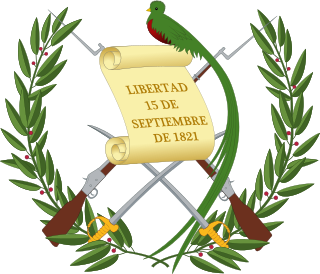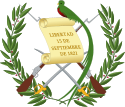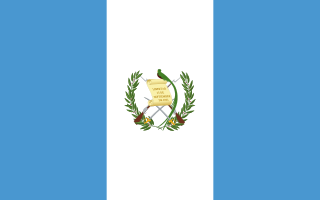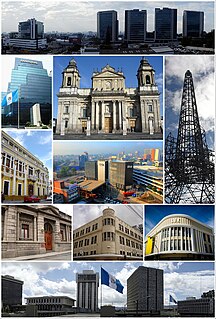The Progressive Party of Canada was a federal-level political party in Canada in the 1920s until 1930. It was linked with the provincial United Farmers parties in several provinces, and it spawned the Progressive Party of Saskatchewan, and the Progressive Party of Manitoba, which formed the government of that province. The Progressive Party was part of the farmers' political movement that included federal and provincial Progressive and United Farmers' parties.

The Canadian federal election of 1921 was held on December 6, 1921, to elect members of the House of Commons of Canada of the 14th Parliament of Canada. The Union government that had governed Canada through the First World War was defeated, and replaced by a Liberal government under the young leader William Lyon Mackenzie King. A new third party, the Progressive Party, won the second most seats in the election.

The Saskatchewan Liberal Party is a centre-left political party in the Canadian province of Saskatchewan.

The Alberta general election of 1921 was the fifth general election for the Province of Alberta, Canada. It was held on July 18, 1921, to elect members to the 5th Alberta Legislative Assembly. It was one of only four times that Alberta has changed governments.

The Alberta general election of 1959 was the fourteenth general election for the Province of Alberta, Canada. It was held on June 18, 1959, to elect members of the Legislative Assembly of Alberta.
Dianne Poole is a former politician in Ontario, Canada. She served as a Liberal member of the Legislative Assembly of Ontario from 1987 to 1995.

Edmonton-McClung is a provincial electoral district in Edmonton, Alberta, Canada. The district was created in 1993 and is named after Nellie McClung.
In the parliamentary politics of the United Kingdom and Canada, one member, one vote (OMOV) is a method of selecting party leaders by a direct vote of the members of a political party. Traditionally, these objectives have been accomplished either by a party convention, a vote of members of parliament, or some form of electoral college. OMOV backers claim that OMOV enhances the practice of democracy, because ordinary citizens will be able to participate. Detractors counter that allowing those unversed in the issues to help make decisions makes for bad governance.
Manitoba's general election of June 8, 1953 was held to elect Members of the Legislative Assembly of the Province of Manitoba, Canada. This was the first election held in Manitoba after the breakup of a ten-year coalition government led by the Liberal-Progressives and Progressive Conservatives. The coalition, which began in 1940, was ended in 1950 when the Progressive Conservatives crossed to the opposition side.
Westminster Abbey was a constituency in the Parliament of the United Kingdom. It returned one Member of Parliament (MP) to the House of Commons by the first past the post system of election.
Richard James "Rick" Swenson is a provincial level politician from Saskatchewan, Canada. He was a member of the Saskatchewan Legislature from 1985 to 1995, and is still active in provincial politics. He was leader of the Progressive Conservative Party of Saskatchewan from 2006 until 2018.
The Middleton and Prestwich by-election, 1920 was a by-election held on 22 November 1920 for the British House of Commons constituency of Middleton and Prestwich in Lancashire.

General elections were held in Guatemala between 6 and 8 February 1931. In the presidential election Jorge Ubico was elected unopposed, after the remaining sector of the old Liberal Party did not object to his candidacy, whilst the Conservative Party was too disorganised and discredited from the Lázaro Chacón González era to put forward a candidate. Ubico's Progressive Liberal Party, formed by a union of the two wings of the divided Liberal Party also won the parliamentary election unopposed.

Parliamentary elections were held in Guatemala in December 1923. The result was a victory for the Liberal Party, which won all 69 seats. Liberal candidates won overwhelming victories in every constituency, a result that the American diplomatic corps described as farcical.
The Cleveland by-election, 1902 was a parliamentary by-election held for the House of Commons constituency of Cleveland in the North Riding of Yorkshire on 5 November 1902.

The Peckham by-election, 1908 was a parliamentary by-election held for the British House of Commons constituency of Peckham in the Metropolitan Borough of Camberwell, London on 24 March 1908. The seat was won by the opposition Conservative Party candidate, a gain from the Liberal Party who had won a large majority at the 1906 general election.
The Islington East by-election, 1917 was a parliamentary by-election for the British House of Commons constituency of Islington East held on 23 October 1917.
The Brecon and Radnorshire by-election, 1939, was a parliamentary by-election held on 1 August 1939 for the British House of Commons constituency of Brecon and Radnorshire, in South Wales.
The Cambridge University by-election, 1940 was a parliamentary by-election for the British House of Commons constituency of Cambridge University on 23 February 1940. Cambridge University was a two-member constituency.
The Combined English Universities by-election, 1937 was a parliamentary by-election for the British House of Commons dual member constituency of the Combined English Universities 22 March 1937.










